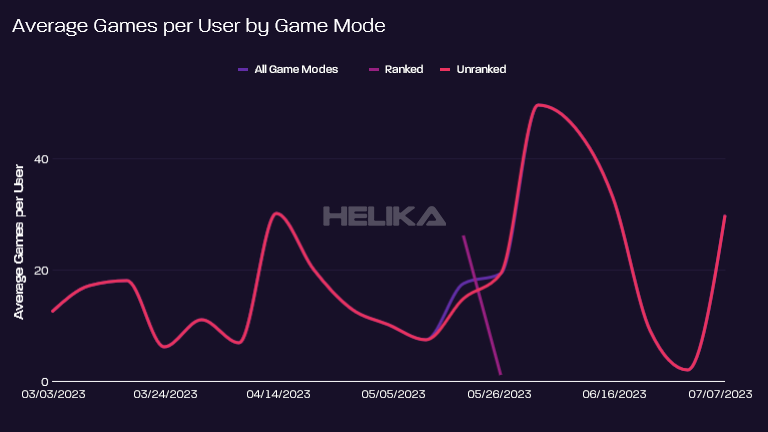Savor the Flavors: Bombay Beijing Fine Foods
Exploring the fusion of Indian and Chinese cuisines with delicious recipes and culinary tips.
From Generic to Great: The Personalization Revolution in Player Experiences
Discover how personalized experiences are transforming player engagement from mundane to extraordinary! Join the revolution now!
Unlocking Engagement: How Personalization Transforms Player Experiences
Personalization in gaming is no longer just a trend; it's a vital component that shapes player experiences. By leveraging data analytics and user preferences, game developers can tailor content, quests, and interactions to fit the unique tastes of individual players. This leads to a deeper level of immersion, as gamers feel more connected to their experiences. For instance, when players encounter customized narratives or in-game characters that reflect their personal choices, they are more likely to invest time and effort into the game, resulting in enhanced engagement and satisfaction.
Moreover, the implementation of personalization strategies can significantly impact player retention rates. Studies show that games that adapt to a player's style, providing dynamic challenges or offering rewards that resonate with their gaming history, can increase the likelihood of players returning. For example, utilizing algorithms that analyze player behavior allows developers to create targeted events or challenges that keep the gameplay fresh and exciting. Ultimately, by unlocking the potential of personalization, developers can transform player experiences, creating not just gamers, but loyal communities that thrive on shared experiences.

Counter-Strike is a popular tactical first-person shooter video game that has captivated players worldwide since its initial release. Known for its team-based gameplay, players can take on the roles of terrorists or counter-terrorists in various objective-driven game modes. Many gamers seek to enhance their experience with various tools and promotions, so using a stake promo code can be a great way to maximize their playtime.
Is Your Game Missing the Mark? The Importance of Personalization
In today's competitive gaming landscape, personalization has emerged as a crucial factor that can make or break a player's experience. When a game lacks personalization, it risks missing the mark, leaving players feeling disconnected and less engaged. Personalization allows for tailored content that resonates with individual players, whether through customizable avatars, unique storylines, or dynamic gameplay elements. By leveraging data-driven insights, developers can create a more immersive experience that not only meets but exceeds player expectations.
Moreover, the importance of personalization extends beyond just enhancing player engagement; it also fosters loyalty and community building. When players feel that their preferences are acknowledged and catered to, they are more likely to return and recommend the game to others. To implement effective personalization strategies, developers should consider utilizing feedback loops, player behavior analysis, and advanced algorithms. By doing so, they can ensure that their game not only attracts players but also keeps them invested long-term.
From Generic to Great: Best Practices for Personalizing Player Journeys
In today's competitive gaming landscape, players crave unique experiences that resonate with their individual preferences and play styles. To transform generic player journeys into great ones, game developers must implement personalization strategies that enhance engagement and satisfaction. One effective approach is to utilize player data analytics to understand behavioral patterns and preferences. This data can inform the design of personalized in-game content, such as tailored quests or challenges that reflect a player's skill level and interests. By actively engaging with players and incorporating their feedback, developers can create a dynamic environment that evolves with the user, ensuring that each journey feels bespoke.
Another critical aspect of personalizing player journeys is the inclusion of adaptive difficulty settings. Instead of a one-size-fits-all approach, games should adjust difficulty based on a player's performance and preferences. Incorporating mechanisms such as a player feedback loop or real-time adjustments can enhance the gaming experience, making it more immersive and enjoyable. To further enhance personalization, consider implementing social features that connect players with like-minded individuals, fostering a sense of community and shared achievements. By adopting these best practices, game developers can successfully transition from generic experiences to memorable and engaging player journeys.